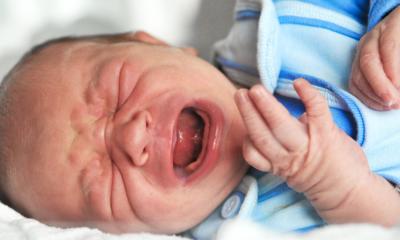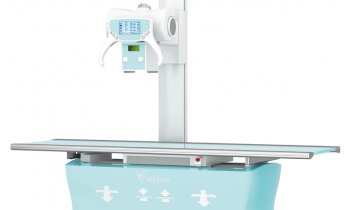Congenital heart disease
New research carried out in the UK has revealed that young children with congenital heart disease are at risk of having harmful toxins in their blood, particularly following surgery. Mark Nicholls reports

A team from Imperial College London has found that babies and toddlers with high levels of toxins from gut bacteria in their blood were likely to take longer to recover from surgery and spend more time in intensive care.
They also acknowledged that more needs to be done to protect children who have heart surgery from bacterial toxins, with options including the use of drugs that neutralise them or treatments that protect the gut.
Now they are embarking on a new focus of research to help identify, ahead of surgery, which patients are most at risk and to focus treatments on helping reduce that risk.
Paediatric consultant Dr Nazima Pathan, from the National Heart and Lung Institute at Imperial College London, is the lead author of the study which has been published in the American Journal of Respiratory and Critical Care Medicine. ‘The gut usually acts as a barrier that protects the body from toxins,’ she explained. ‘However, our study suggests that, in some babies with congenital heart disease, the gut isn’t able to do this job properly. These babies are often small and undernourished, and the heart defect can mean that the blood supply to the gut is abnormal. On top of this, they have to cope with the trauma of surgery and our study suggests that all these factors can affect the protective barrier function of the gut.’
Bacterial fragments called endotoxins, which cross into the blood from the gut, stimulate the body’s immune system and can affect the function of vital organs. The researchers measured the levels of endotoxins in 40 children aged between two months and 46 months who required surgery for congenital heart disease and had been admitted to the paediatric intensive care unit at Royal Brompton Hospital, where Dr Pathan is also a paediatric consultant.
The results showed that, even before surgery, over a fifth of children had higher than normal levels of endotoxins -- and levels rose after surgery. Overall, 27.5% of the children had raised endotoxin levels after surgery.
The highest endotoxin levels were measured in small children and those whose heart defects resulted in compromised blood supply to the gut.
What also emerged was that children with high endotoxin levels showed more signs of organ dysfunction and tended to spend longer in intensive care.
While the children may have been exposed to bacterial toxins during surgery, the levels of toxins in the blood continued to rise in the days after surgery, suggesting that bacteria in the gut were the main source.
Dr Pathan added: ‘We were surprised at how common endotoxaemia was in these children and how strongly endotoxin levels correlated with poor clinical outcomes. ‘Not many children die from surgery, but the problem is that the longer they stay in intensive care, the greater impact on their longer-term neuro-development,’ she pointed out. ‘Most children recover well from surgery for congenital heart disease, but we want to reduce the chances of further complications so that young children don’t have to spend as long in intensive care.’
The next research stage involves working with Imperial colleagues to define how vulnerable children can be protected from harmful toxins.
As most congenital heart procedures are elective, she said, doctors can try to reduce the toxins risk by planning and use of relevant drugs, though in a way that does not negatively affect the bacteria levels and helps preserve the elements of bacteria in the gut that are beneficial to the children.
Congenital heart disease is among the most common birth defects, affecting about one in every 145 births. While some abnormalities are minor and require no treatment, many babies and young children must undergo surgery to correct the defect.
Royal Brompton and Harefield NHS Foundation Trust is a national and international specialist heart and lung centre. Based in Chelsea in London and Harefield in Middlesex the Trust is renowned for paediatric cardiac surgery and ground-breaking research with a number of leading institutions. However, while it is the UK’s largest centre for the treatment of adult congenital heart disease, its children’s heart surgery unit is now under threat of closure due to a major National Health Service reorganisation of paediatric heart surgery centres.
Dr Pathan’s study was funded by Heart Research UK (£84,500) and the Higher Education Funding Council for England (HEFCE).
20.10.2011










